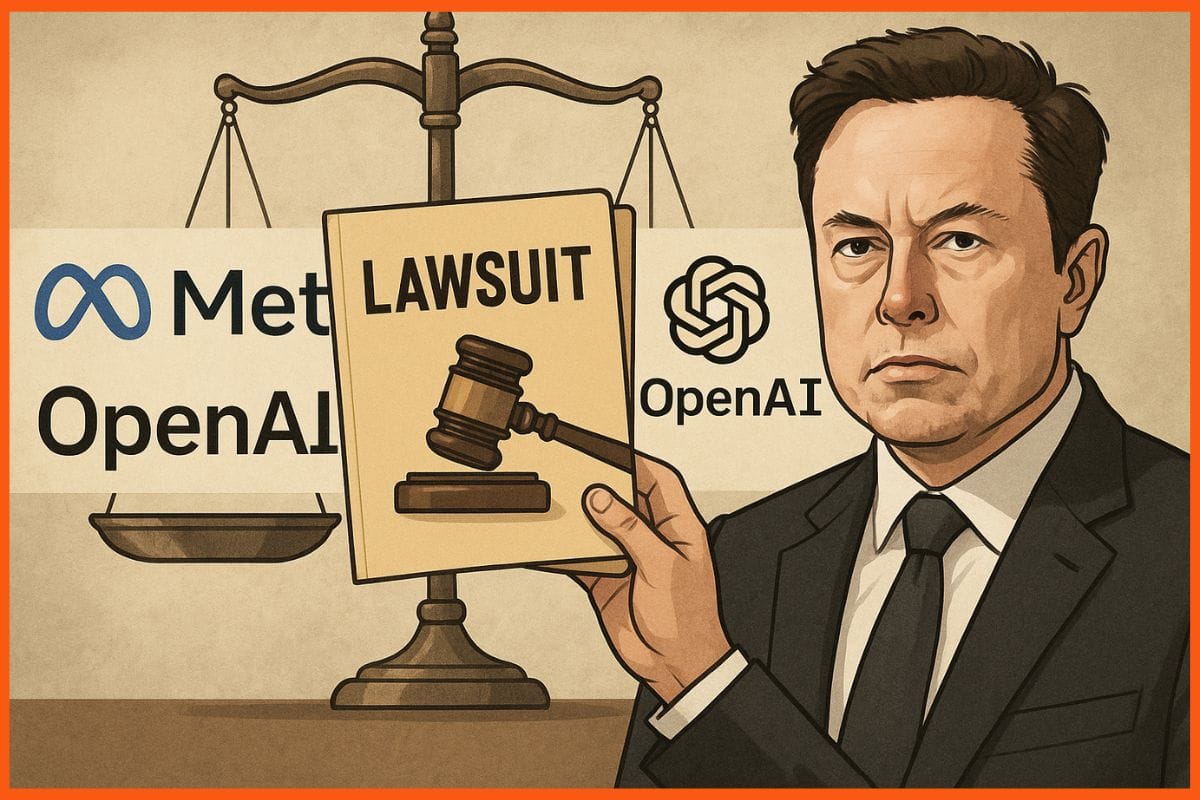Elon Musk’s artificial intelligence company, xAI, has filed a lawsuit against OpenAI, accusing it of stealing trade secrets and confidential business information. The complaint was filed earlier this week in the U.S. District Court for the Northern District of California.
What the lawsuit claims
According to the court filing, xAI has accused OpenAI of engaging in a “deeply troubling pattern” of behaviour by recruiting former xAI employees and using them to gain access to proprietary information.
The alleged stolen material includes source code for xAI’s chatbot Grok and details about the company’s data centre deployment processes.
The lawsuit names several individuals, including former xAI engineers Xuechen Li and Jimmy Fraiture, as well as a senior finance executive. xAI claims these individuals joined OpenAI and subsequently shared xAI’s internal data and technological insights without authorisation.
Court records show the case, X.AI Corp. v. OpenAI, was officially filed on 24 September 2025 and assigned case number 3:25-cv-08133.
Background and context
xAI, founded by Elon Musk in 2023, operates the Grok AI chatbot, which is integrated into Musk’s social media platform X (formerly Twitter). The company positions itself as a transparent and ethical alternative to competitors such as OpenAI, Anthropic, and Google DeepMind.
This lawsuit marks a new chapter in the long-running dispute between Musk and OpenAI CEO Sam Altman. The two co-founded OpenAI in 2015 alongside others with a shared vision to make artificial intelligence safe and accessible. However, Musk left the board in 2018, citing disagreements over OpenAI’s direction and growing ties to major tech investors.
Since then, Musk has publicly criticised Altman for turning OpenAI into a for-profit company and aligning it closely with Microsoft. He has accused the firm of prioritising profits over its original non-profit mission of developing AI “for the benefit of humanity.”
Prior legal disputes
This is not the first time xAI has taken legal action related to alleged data theft. Earlier in September 2025, a U.S. judge granted xAI a temporary restraining order against former employee Xuechen Li, preventing him from working in AI until the court is satisfied that he has deleted all confidential information belonging to xAI.
That earlier ruling is now seen as a potential precedent that could strengthen xAI’s latest case against OpenAI.
OpenAI’s response
OpenAI, led by Sam Altman, has denied all allegations made by xAI. A spokesperson for the company described the lawsuit as “the latest chapter in Mr Musk’s ongoing harassment.” OpenAI stated that it has not stolen or used any proprietary material belonging to xAI and intends to firmly defend itself in court.
Why it matters
The case underscores the intensifying competition in the AI industry, where leading companies are racing to develop more powerful and commercially viable AI systems.
Legal experts suggest that this lawsuit could have far-reaching consequences, depending on whether the court determines that the disputed material qualifies as legally protected trade secrets under the Defend Trade Secrets Act.
If the court finds merit in xAI’s claims, the ruling could set a precedent affecting how AI companies recruit employees and safeguard intellectual property.
What’s next
The case will now proceed through the initial stages of the U.S. legal process. The court may soon schedule preliminary hearings and determine whether xAI is entitled to any immediate relief. Both companies are expected to present extensive documentation and technical evidence in the coming months.
As the legal battle unfolds, the dispute highlights not only the high stakes in AI development but also the growing tension between innovation and ethics in the race to dominate the next era of artificial intelligence.


Leave a Reply